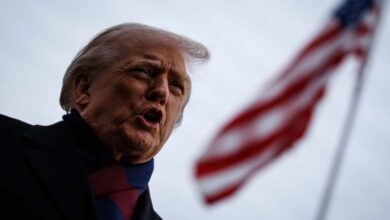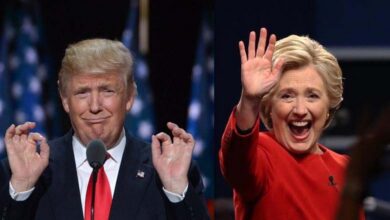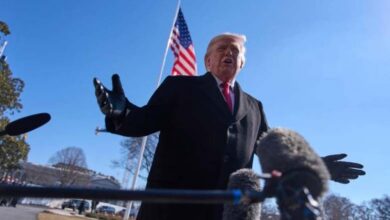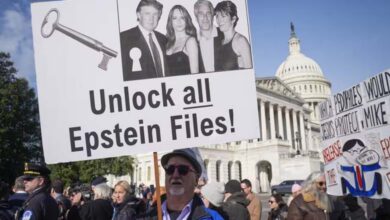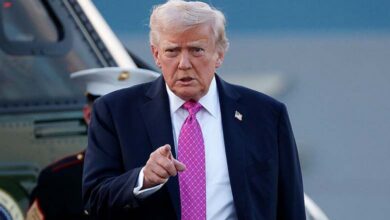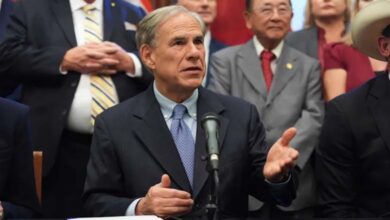After the Surprise Decision… Behind the Scenes of Elon Musk’s Departure from the U.S. Government
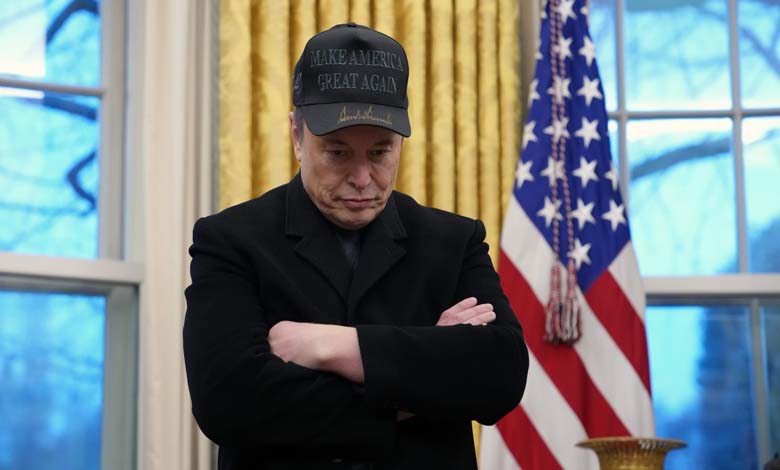
Billionaire and Tesla CEO Elon Musk announced his resignation from his role in former President Donald Trump’s administration—a move confirmed Wednesday night by the White House, which stated that the termination process had already begun, according to The Guardian.
-
“Musk’s Policy” Threatens Counterterrorism Efforts in the U.S.
-
Who is the President: Trump or Musk? A Newspaper Unveils a Surprise
In a post on his social platform “X,” Musk stated that his scheduled term as a special government employee had come to an end. He also thanked President Trump for giving him the opportunity to help curb unnecessary government spending.
He further added that the “DOGE mission”—referring to the so-called “Department of Government Efficiency” he created—would continue to grow over time and become a sustainable approach within federal institutions.
A White House official confirmed to Reuters the accuracy of these reports, noting that the process to terminate Musk’s government role began immediately on Wednesday evening.
-
Musk’s Authority Raises Americans’ Concerns of a State within a State
-
“He knows what he’s saying”… Elon Musk comments on a “strong statement” by UAE Foreign Minister Sheikh Abdullah bin Zayed
Musk’s Exit Behind Closed Doors
Musk’s departure, once calling himself “Trump’s number one friend,” was swift and low-profile. According to an informed source, Musk did not have a formal conversation with Trump before making his decision, which was taken at senior staff levels.
The Guardian noted that Musk, considered the world’s richest man, had defended his role as an unelected official who was granted unprecedented powers by Trump to dismantle parts of the federal bureaucracy. His 130-day term was scheduled to end on May 30.
Despite his departure, both Musk and the U.S. administration confirmed that the efforts of “DOGE” to restructure and downsize the federal government would continue.
-
Elon Musk accompanies Netanyahu on a visit to a settlement near Gaza
-
Musk warns: This is the Biggest problem facing humanity
Preparing to Leave
Throughout the week, Musk hinted at his intention to leave Washington and refocus on his business ventures. He also expressed disappointment over a spending bill proposed by Trump, which he deemed too expensive and undermining his government efficiency goals.
In an interview with The Washington Post on Tuesday, Musk said, “The federal bureaucracy is much worse than I imagined,” describing the reform efforts in Washington as “an uphill battle, to say the least.”
He also noted that the “DOGE” initiative had become a scapegoat for any dysfunction within the Trump administration, deepening his frustration.
-
Elon Musk arrives in Tel Aviv amid anti-semitism accusations
-
Does the Israeli occupation prevent Elon Musk from providing internet service to Gaza?
Musk’s Clashes with U.S. Officials
According to The Guardian, the surprise resignation followed multiple disagreements between Musk and various government officials. Tensions went public when Musk called Trump’s trade adviser Peter Navarro a “fool” for rejecting his proposal to eliminate mutual tariffs between the U.S. and Europe.
Musk also reportedly expressed frustration over a deal between the Abu Dhabi government and OpenAI—his chief AI competitor led by Sam Altman—according to The New York Times.
The Wall Street Journal reported that Musk had previously tried to block the deal unless his company was included.
-
Elon Musk warns of a third world war… What’s happening?
-
Will Qatar take control of Twitter through Elon Musk?
Growing Political Frustration
Reports indicate Musk’s increasing disillusionment with politics intensified after his judicial nominee lost in Wisconsin, despite him spending nearly $25 million to support the campaign.
Through the “DOGE” initiative, Trump and Musk managed to reduce federal civilian staff by nearly 12%—around 260,000 out of 2.3 million positions—according to a Reuters review of agency departures.
This downsizing occurred via layoff threats, early retirement financial incentives, or contract buyouts.
-
Trump and Foreign Policy: 4 Keys to Understanding the Chaos of the First 100 Days
-
Wanted for $5 Million: Trump Administration Hunts Down Man Who Sells Death
Controversial Political Involvement
At the same time, Musk’s political activism sparked widespread protests and pressure from some investors who urged him to step down from his advisory role to Trump and focus more on Tesla’s management.
Although Musk spent nearly $300 million supporting Trump’s campaign last year—as well as other Republican candidates—he announced earlier this month at an economic forum in Qatar that he would significantly reduce his political spending, stating, “I’ve done enough.”
-
Spending Cutback Absorbs $5.1 Billion from the Pentagon
-
“Zero Hour” Nuclear Crisis: Where Would the U.S. President Hide?
The New York Times reported that Musk had told Trump’s advisers he intended to donate an additional $100 million to pro-Trump groups ahead of the 2026 midterms, but the funds had not been transferred as of this week.
Thus ends Musk’s tenure in the Trump administration, marked by internal tensions and waning enthusiasm, as he shifts his focus back to tech and business, abandoning his attempt to reform government from within through “DOGE.”


